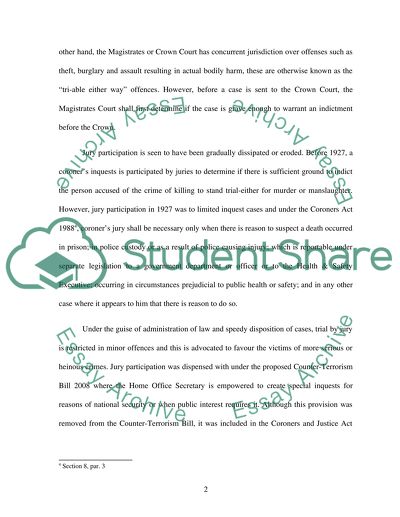Cite this document
(“Trial by Jury, Is the Lamp That Shows That Freedom Lives Assignment”, n.d.)
Retrieved from https://studentshare.org/law/1441547-lord-devlin-noted-in
Retrieved from https://studentshare.org/law/1441547-lord-devlin-noted-in
(Trial by Jury, Is the Lamp That Shows That Freedom Lives Assignment)
https://studentshare.org/law/1441547-lord-devlin-noted-in.
https://studentshare.org/law/1441547-lord-devlin-noted-in.
“Trial by Jury, Is the Lamp That Shows That Freedom Lives Assignment”, n.d. https://studentshare.org/law/1441547-lord-devlin-noted-in.


